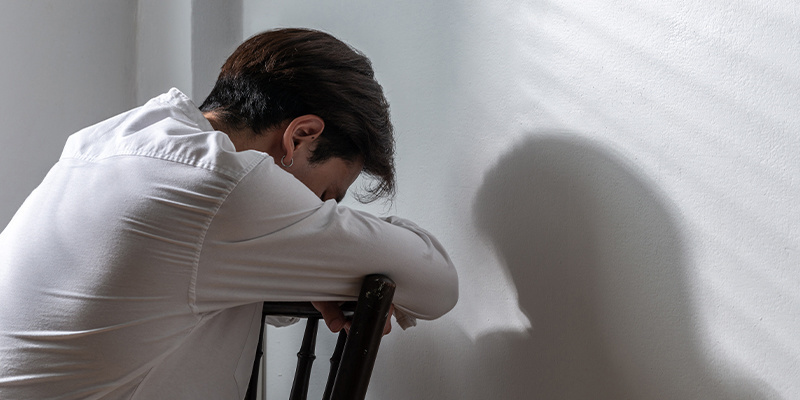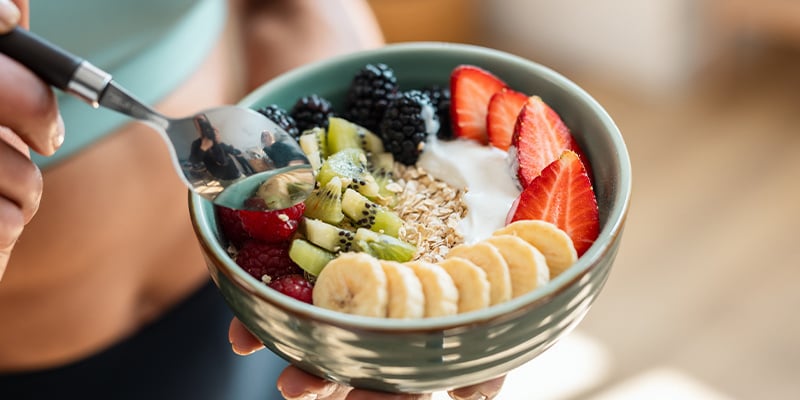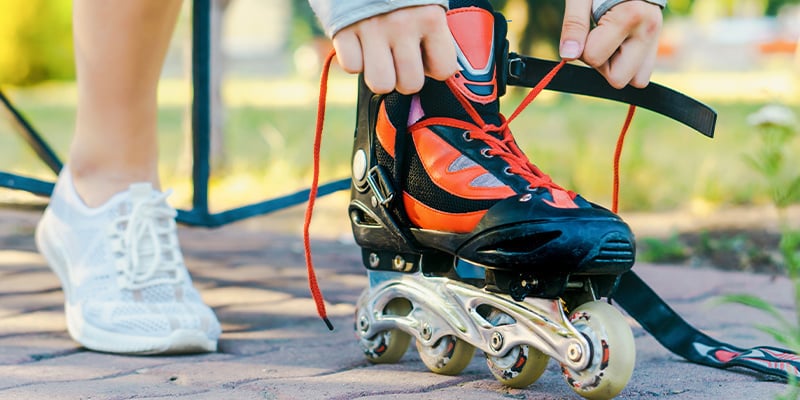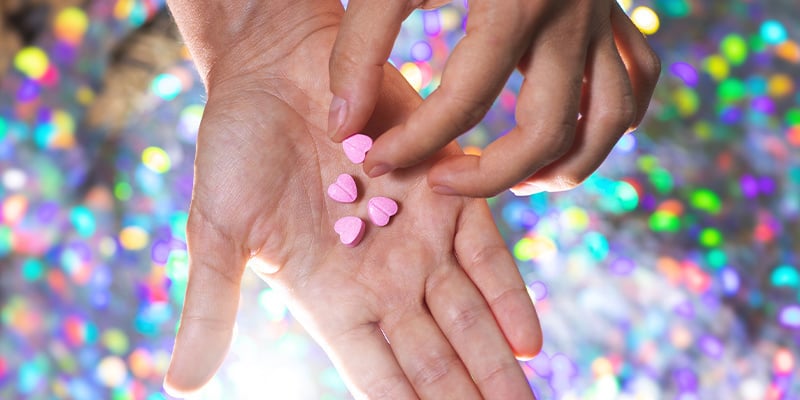
What is a drug comedown, and how do you recover from one?
Comedowns can make the high seem hardly worth it—but they don’t have to. We explore what causes them, how they impact mental health, and how to recover fast.
Comedowns are the scourge of many drug users’ lives. Sudden, brutal, and long-lasting, they can make the comparatively momentary high seem like a cruel joke. With that said, if managed appropriately and understood, then comedowns needn’t be so bad after all.
In this article, we’re looking at what comedowns are and how to manage them.
Comedowns: A brief introduction

Comedowns are the after-effects of certain drugs—usually stimulants. Once the drug wears off and neurotransmitter activity drops—or more accurately, as the receptors become desensitised, the energising, euphoric feelings can descend into something less pleasant. For some, this might be a slightly grumpy mood and fatigue. For others, it can be a state of extreme suffering.
Some kind of comedown is par for the course when taking certain drugs. However, with adequate self-awareness, preparation, and understanding of how drugs and our bodies interact, we can minimise their negative impact.
What does a comedown feel like?

Simply put, a comedown feels like the inversion of the high. Euphoria and a sense of extreme extroversion can turn to sadness and introversion; hope to fear; a lack of care to anxiety, and so on. A comedown does not feel good!
For people in a good state, who don’t take drugs very often, a comedown may only last a day or two and feel like a minor inconvenience. For people who use drugs often or those whose mental or physical health isn’t at its best, a comedown can be seriously destabilising, might trigger depression, anxiety, or paranoia—and in extreme cases, recovery can take weeks.
For those in the middle, a comedown will cause tiredness and bad moods for 3–7 days. But treating yourself well before and after can make a big difference!
Comedowns can include the following symptoms:
- Feeling anxious, depressed, or irritable
- Feeling tired/exhausted
- Difficulty concentrating
- Feeling hopeless
- Difficulty sleeping
- No appetite
- Muscle twitching
- Shaking
- Restless legs
- Nausea
- Headaches
- Mouth ulcers
Which drugs cause a comedown?
MDMA, cocaine, mephedrone, amphetamine, methamphetamine—stimulants, basically. Other drugs, such as opiates and opioids, can also cause comedown-like effects, but this has more to do with withdrawals than merely the after-effects of the drug itself.
Even caffeine and sugar are thought to cause mini-comedowns. While these drugs may not cause the intense crash of an MDMA comedown, they can still cause a significant drop in energy, cognitive ability, and mood.
Psychedelics and cannabis do not cause comedowns; instead, they just gradually wear off until the user is sober. That’s not to say that these drugs do not have after-effects. Most people who have smoked weed will be aware of what a “weedover” feels like. But these after-effects are not the same as a comedown.
What’s actually happening when you have a comedown?

There are several factors that contribute to a comedown. The most significant is what’s happening in your brain. Psychoactive drugs work by modifying the release of certain neurotransmitters in the brain. Take MDMA, for example. MDMA works, alongside other mechanisms, by causing a surge in serotonin. This neurotransmitter then makes the user feel extremely happy, sociable, hopeful, energetic, and so on.
As time progresses, the receptors respond to excess serotonin by downregulating sensitivity in order to try and restore a normal balance. Essentially, the number of points that serotonin can bind to diminishes. Then, once someone stops taking MDMA, the amount of serotonin being released also diminishes. So the brain returns to a state of normal levels of serotonin, but a significantly reduced number of serotonin receptors.
This is why comedowns are characterised by the inverse effects of their corresponding high.
This explains most of a comedown, but other factors include:
- The fatigue caused by stimulant drugs and not sleeping
- Dehydration
- Hunger
Is a comedown the same as withdrawal?
A comedown is not the same as withdrawal, but they are linked. Withdrawals are linked to dopamine, whereas a comedown is linked to whichever receptor the drug primarily works on.
Let’s take cocaine as an example. Cocaine can cause an acute comedown from a single use—as many people will be aware. This is a short-lived experience that follows the symptoms listed above. Crucially, while people will feel uncomfortable during this time, they won’t feel compelled to use more cocaine to counteract those feelings.
However, people who use cocaine regularly and develop a substance use disorder may become dependent on it. If these people then stop using cocaine, they will experience withdrawal symptoms. Withdrawal occurs when the brain needs a certain drug in order to maintain normal neurotransmitter and receptor levels and cannot create an appropriate balance without a certain drug.
So, withdrawals come from prolonged use and are an aspect of dependence. Comedowns, on the other hand, are just the after-effects of certain drugs.
How to recover from a comedown

Comedowns need not be terrible! There are many steps you can take to minimise the effects of comedowns and speed up recovery. But before we delve into those, here’s one important side note.
Knowing when not to use drugs
If your mental health is poor, your physical health is poor, or your life is especially stressful, comedowns can be very unsettling and distressing. They strip away your ability to self-regulate and remain motivated, so it’s crucial to understand that there are some periods in life when comedown-causing drugs are best avoided.
Comedowns are more manageable when you have the space and time to recover properly. But when you have to get up the next day (or Monday) and deal with all the stresses of life, they are going to hurt.
Now, let’s look at how to mitigate comedowns.
Get some sleep

Sleep is when our body and mind take care of themselves and repair. So if you deny your body sleep, you deny it the opportunity to recover from a comedown. This is important both before and after the consumption of the drug in question, but it’s particularly important afterwards.
If you get several nights of solid, high-quality, and restful sleep, you’ll find your comedown will drift away fairly painlessly.
Avoid stress
Stress can turn a comfortable comedown into a nightmare very quickly. As mentioned, if you know you have a lot of stress or responsibility on the horizon, it’s best to avoid a comedown in the first place.
When managing a comedown, avoid stress triggers—like checking your phone, especially work chats and emails. Let people know in advance that you’re going to be out of action for a couple of days. Also, shop beforehand so you have everything you need, tidy your home, and generally make your life easy and comfortable.
Cortisol (a stress hormone) and comedowns are not good companions, so try to keep everything very chill.
Eat well

You’ll probably be tempted to order in junk for convenience while you’re coming down. If you can avoid it, try to do so, and instead eat healthy food. Your brain will be searching for another hit (and junk food will satisfy this urge, albeit momentarily), but resisting and instead eating fresh, nutrient-rich meals will make you feel better immediately and will speed up your recovery.
Stimulants really take a toll on your body, and eating well will help it recover swiftly.
Avoid substances
Further substance use will only prolong the effects of a comedown, as it will destabilise your brain and exhaust your body still further. This is especially true of alcohol and other stimulants, and the same goes for drugs such as cannabis.
Some people like to smoke their way through a comedown. And while this might work, we’d suggest staying sober and allowing your brain to properly take care of itself.
Note: Caffeine might seem like the perfect pick-me-up when you’re exhausted from a comedown, but it can have quite destabilising effects, so be aware.
Be active

Don’t veg out on the couch! It’s tempting, and perhaps necessary on day one, but otherwise you should get moving. Maybe don’t go for a run or climb a mountain, but try a gentle walk or yoga. Get the blood moving and the body working! This will help you to feel better straight away, and it will speed up the recovery more generally.
Treat yourself well
Just be nice to yourself. Whatever that means to you is correct. Self-compassion is important at the best of times, and even more so when you’re coming down. Make life easy and pleasant. Plan a few days where you don’t have to do anything but enjoy life.
Take drugs infrequently

It’s common knowledge that comedowns compound over time. Take MDMA once a year, and the comedown is likely to be mild. Take it once a month, and they’ll become worse over time until they start affecting how you feel day-to-day.
Using drugs infrequently is one of the best ways to avoid bad comedowns. Put another way: using drugs frequently is one of the best ways to ensure bad comedowns.
Sorry to say it, but moderation is key!
Comedowns: A necessary evil?

If you take stimulants, you have to be aware that you’re going to feel rough afterwards. If you think you can avoid comedowns entirely, you’re fooling yourself. But you can mitigate them.
A comedown needn’t last long, nor must it be awful. If you know when and when not to take drugs, take them infrequently, and treat yourself properly before and after to minimize the comedown and just focus on the brilliant part: being high!
-
 4 min
6 March 2023
How To Recover From A Hangover
Many of us have been there—that thumping headache, that inescapable nausea. While there's no magic pill out there to make your hangover go poof, we've got a few hints and tips that may help to...
4 min
6 March 2023
How To Recover From A Hangover
Many of us have been there—that thumping headache, that inescapable nausea. While there's no magic pill out there to make your hangover go poof, we've got a few hints and tips that may help to...
-
 4 min
16 February 2023
How To Recover From An MDMA Hangover
MDMA is famed for the glowing feelings it produces on a night out, but it can make you pay for them with a nasty hangover. Luckily, if you know how what to do, it’s possible to get right back on...
4 min
16 February 2023
How To Recover From An MDMA Hangover
MDMA is famed for the glowing feelings it produces on a night out, but it can make you pay for them with a nasty hangover. Luckily, if you know how what to do, it’s possible to get right back on...
-
 4 min
20 December 2021
What’s The Difference Between Hard And Soft Drugs?
Ask someone if they know how to distinguish between hard and soft drugs, and they'll likely say yes. However, just how effective are the terms "hard" and "soft" in classifying drugs and their...
4 min
20 December 2021
What’s The Difference Between Hard And Soft Drugs?
Ask someone if they know how to distinguish between hard and soft drugs, and they'll likely say yes. However, just how effective are the terms "hard" and "soft" in classifying drugs and their...
-
 3 min
8 July 2019
The Best Ways To Overcome A Weed Hangover
Although hangovers are associated with the horrific feeling of overindulging in alcohol, smoking far too much weed the night before may also generate a feeling that isn't exactly pleasant.
3 min
8 July 2019
The Best Ways To Overcome A Weed Hangover
Although hangovers are associated with the horrific feeling of overindulging in alcohol, smoking far too much weed the night before may also generate a feeling that isn't exactly pleasant.





 United States
United States











